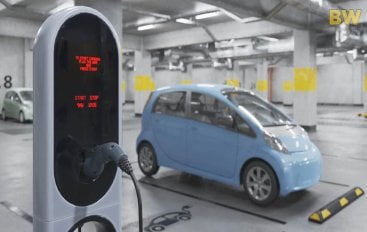Challenges Faced By Indian Corporates & Govts To Scale EV Adoption In India




The adoption of EVs in India has been extremely rapid and as time passes by the industry is witnessing huge growth not only in sales but also in innovations. This growth is a result of the endless dedication and hard work put in by multiple parties including innovators, investors, governments, and corporates at large to pave the path for zero carbon emissions in the country.
This transition towards electric vehicles is an inevitable step in the journey towards a more sustainable future for the world and India is no exception. However, a more aggressive penetration into green mobility is something that everyone needs to take seriously especially so with the increasing need to address air pollution issues in the country. Despite all the progress, this is not a path that is easy to achieve. Scaling EV adoption in India presents several challenges and all of these must be addressed by both the corporate sector and the government as it is only with the unity of these sectors that EVs can accelerate their growth.
Navigating Corporate Dynamics
Although Corporate players want to take all steps to ensure they are switching to sustainable mobility models, there are many aspects to consider while doing this. These challenges include the high upfront cost of EVs, limited charging infrastructure, limited availability of models, consumer misconceptions and lack of awareness about EVs, and concerns over range and performance. Overcoming these barriers requires careful consideration of the potential benefits and drawbacks of EVs and a thorough understanding of the broader market trends and industry dynamics. To successfully navigate these challenges, corporations may need to develop innovative strategies, form partnerships with key stakeholders, and engage in advocacy efforts to raise awareness and support for EVs.
The Government’s Outlook
The government of India is taking all measures to ensure that EVs can scale optimally. In the recent Union Budget they also announced The National Green Hydrogen plan and the government’s allocation of 35,000 Crores in the Energy Sector for energy security will further drive innovation and growth in the sector along with extended concessions on Lithium Ion Batteries and the Green Credit Program will definitely provide a boost to the electric vehicle industry. However, India's reliance on imports for key components of EVs, such as batteries, poses challenges in terms of cost, quality control, and supply chain management.
The road infrastructure too on the other hand is a major challenge that lies ahead of the government to support the scale of the EV industry along with developing charging stations at frequent intervals in order to make this a common sight and encourage users to opt for sustainable fuel vehicles.
Way Ahead to Revive the Engine of Sustainability
To overcome these challenges and promote EV adoption, both the corporate sector and the government need to come together and take a multi-pronged approach. This could include incentivizing the manufacture and use of EVs, investing in charging infrastructure, and providing education and awareness programs to consumers to dispel misconceptions and build confidence in the technology. Additionally, partnerships between the public and private sectors could help to accelerate the growth of the EV industry and make EVs more accessible to a wider audience.
By addressing these challenges head-on, India has the potential to lead the charge in sustainable transportation and set an example for other nations to follow. The road to widespread EV adoption may be long and winding, but with the right strategies in place, India can achieve a greener, cleaner, and more sustainable future.